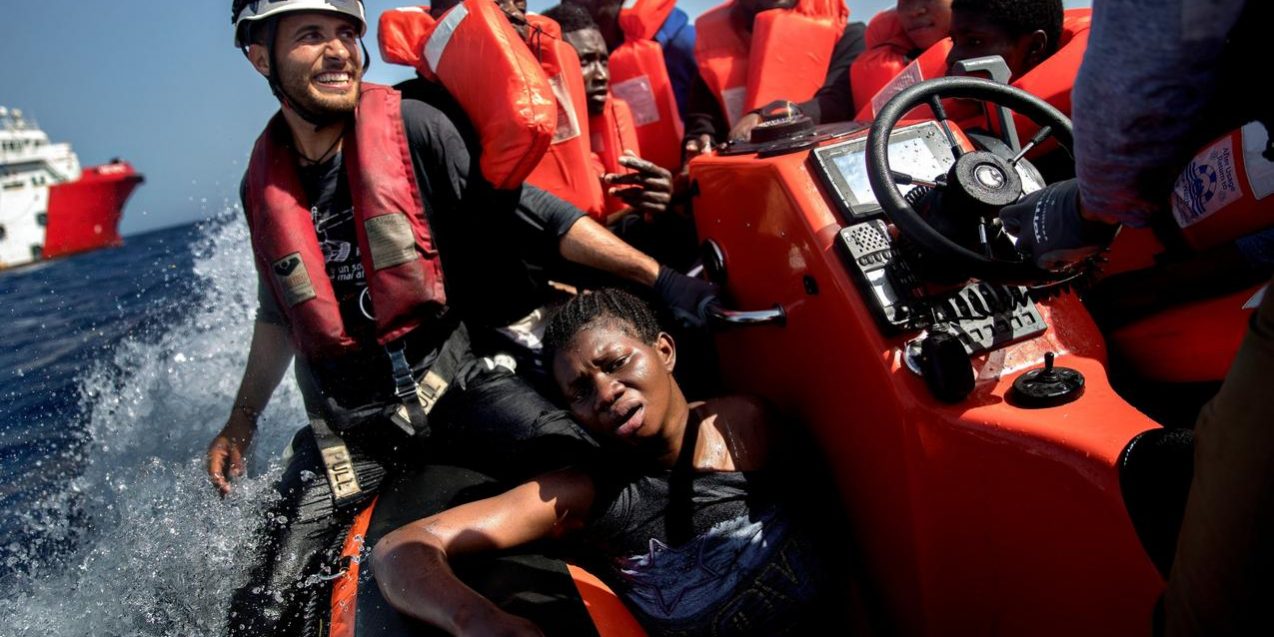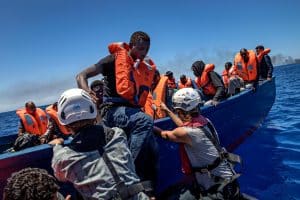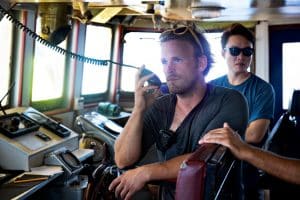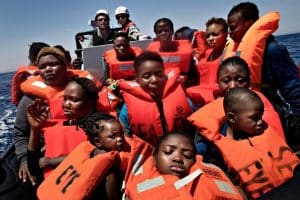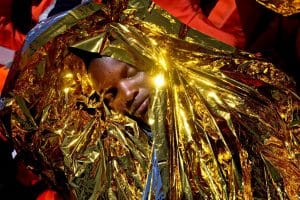Shortly before Sea-Watch’s new flagship sets off on its first mission on 3rd November, Denmark’s biggest newspaper Politiken is awarding the Freedom Prize to Sea-Watch in Copenhagen. The crisis on the Mediterranean has not passed – people are still dying at Europe’s deadliest border. Yet fewer and fewer ships are actively rescuing migrants and refugees. Therefore, now more than ever, this prize sends out an important signal. For the first time, Sea-Watch is putting into operation a ship which can operate all year round: Sea-Watch 3. The prize money of 100,000 Danish krone will go directly towards saving lives. Since it was founded in 2015, Sea-Watch has rescued more than 35,000 refugees and migrants from death at sea.
For as long as anyone is dying in the Mediterranean in the quest to reach a better life, our rescue missions are right and necessary!” says Axel Grafmanns, CEO of Sea-Watch. “Fewer and fewer rescue ships are active in the Mediterranean, as missions have become significantly harder and more dangerous for our crews – not least due to attacks by the EU-sponsored Libyan Coastguard. Thousands are still being forced to risk their lives in unseaworthy boats to escape the terrible situation in Libya, a country in the grip of civil war. We are therefore accepting this prize on behalf of the entire civil fleet which works to save lives on the Mediterranean,” says Grafmanns. “We are delighted with the award of the Politiken Frihedspris, which sends an important signal – now more than ever as the Sea-Watch 3 prepares to begin operations. While the European Union stands by its policy of isolation and pays Libyan militias to break international law, we will not waiver in our mission to uphold human rights, and with the Sea-Watch 3 we are putting a ship into operation which – for the first time – will also be able to operate safely in rough seas.
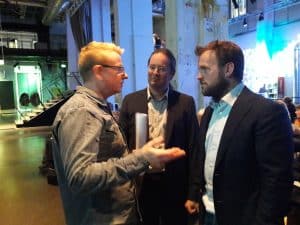 Sea-Watch CEO Axel Grafmanns and mission leader Nico Jankowski accepted the Freedom Prize on Tuesday in Copenhagen (photo: Miriam Tödter). During the ceremony, Politiken journalists Kjeld Hybel and Jacob Ehrbahn talked about their time onboard the Sea-Watch 2. They brought back pictures and reports about the situation at Europe’s borders – together with Sea-Watch activists, they have been witnesses to the humanitarian crisis unfolding in the Mediterranean, a crisis that politicians prefers to turn a blind eye to. Politiken’s take on it: “It is our privilege to honour people working for human rights, or in this case working for the right to life itself.”
Sea-Watch CEO Axel Grafmanns and mission leader Nico Jankowski accepted the Freedom Prize on Tuesday in Copenhagen (photo: Miriam Tödter). During the ceremony, Politiken journalists Kjeld Hybel and Jacob Ehrbahn talked about their time onboard the Sea-Watch 2. They brought back pictures and reports about the situation at Europe’s borders – together with Sea-Watch activists, they have been witnesses to the humanitarian crisis unfolding in the Mediterranean, a crisis that politicians prefers to turn a blind eye to. Politiken’s take on it: “It is our privilege to honour people working for human rights, or in this case working for the right to life itself.”
These are the pictures the world needs to see:
Photos: (c) Jakob Ehrbahn / Politiken
At the end of the week, the flagship of the Sea-Watch fleet, the Sea-Watch 3, will set off from Malta on its first rescue mission. “As one of the biggest ships of the civil fleet, the Sea-Watch 3 will not only play a decisive role in maritime rescue, but also carry out a vital monitoring function,” says Grafmanns. “Without civil observers the European navy, in cooperation with the Libyan Coastguard, would doubtless violate international laws even more blatantly.”





